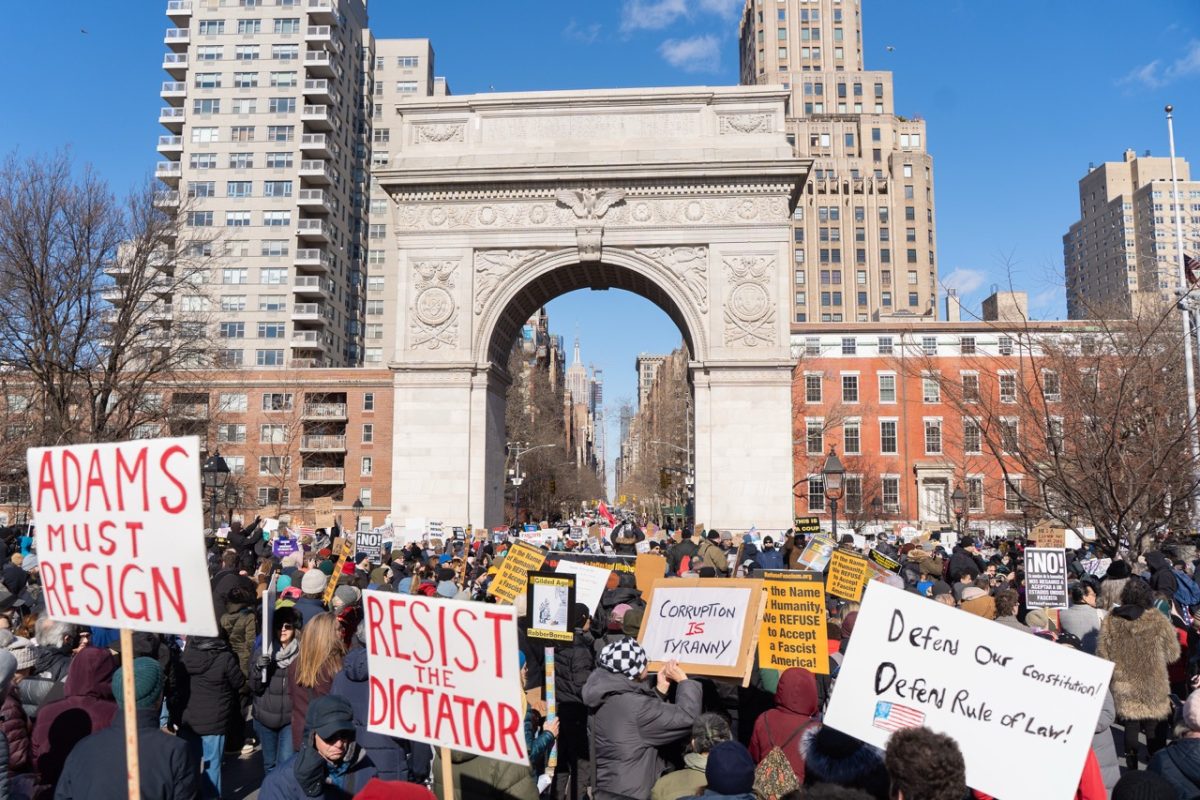Three NYU-affiliated organizations have joined coalitions of higher education groups filing two separate lawsuits against President Donald Trump for his recent mandates targeting diversity initiatives and research funding.
The American Association of University Professors, which has an active chapter at NYU, first took action with a Feb. 3 lawsuit contending that executive orders banning diversity, equity and inclusion programs at universities exceed Trump’s constitutional authority. As a result of the suit, a judge temporarily banned key parts of Trump’s orders on Friday due to potential violations of the First Amendment.
The lawsuit, filed by the AAUP in tandem with the National Association of Diversity Officers in Higher Education and other groups, alleges that the executive orders impose vague mandates by enforcing existing legal obligations — specifically those outlined in the U.S. Supreme Court’s ban on affirmative action in 2023 — rather than creating new ones. It also claimed that the executive order leaves too much authority to attorney generals, who are instructed to identify and deter DEI programs regardless of whether they receive federal funding.
“The undefined terms leave potential targets with no anchor as to what speech or which actions the order encompasses,” the suit reads. “The order thus commits the twin evils of chilling speech beyond the scope of what may be legally regulated, and granting unfettered discretion to executive branch officials.”
During his first 48 hours in office, Trump signed several executive orders aiming to inhibit programs he considered “illegal discrimination” and “wasteful.” On Feb. 14, the Department of Education issued a letter warning all schools to ban DEI programs within two weeks. While a judge temporarily blocked federal capacity to implement the regulations, agreeing that it was not specific enough for institutions to know which grants complied with federal policy, several universities had already started to terminate their equity initiatives.
Stacy Hawkins, a diversity professional and professor at Rutgers Law School, said in an interview with WSN that because the new orders are based on pre-existing ones, universities should perform legal risk assessment of their DEI policies to understand what may be susceptible.
“Colleges and universities should be careful to undertake their own independent analysis, with legal counsel, of their legal obligations under applicable civil rights laws,” Hawkins said. “It is imperative that institutions of higher education step up and defend their critical role as independent centers of knowledge production and dissemination in our democracy.”
The AAUP’s lawsuit also criticizes Trump’s brief freeze on all federal funding, which terminated at least two grants at NYU and caused confusion among universities nationwide. The White House has since cracked down on any research related to gender, race or environmentalism, having threatened to terminate at least 3,400 grants thus far.
The Trump administration also recently imposed an additional limit on federally funded medical research that allows only 15% of governmental grants to go toward indirect costs, which cover staff salaries, staff health insurance and facilities rental costs.
The policy was countered in a Feb. 10 lawsuit filed by the Association of American Universities, the group NYU said it has consulted with on research funding, the Association of American Medical Colleges, an organization that assists the NYU Grossman School of Medicine’s admissions process and the state of Massachusetts. In the suit, plaintiffs argued that Trump’s 15% cap would severely hinder medical research and breakthroughs.
“This cut would also undermine universities’ essential training of the next generation of biomedical and health science researchers,” the AAU said in their press release. “The loss of this American workforce pipeline would be a blow to the U.S. economy, to American science and innovation, to patients and their families and to our nation’s position in the world as a leader in medical research.”
In regards to Trump’s steps toward cutting both DEI programs and research, NYU has said it will continue to monitor national policies. Provost Georgina Dopico has issued several communications to faculty and researchers with updates on federal aid availability, and when asked about university responses to DEI, an NYU spokesperson most recently said the university would “continue to uphold our values and support the NYU community we all cherish.”
“The doctrine of academic freedom, as a constitutional right secured under the First Amendment both on behalf of institutions of higher education and on behalf of faculty, has only been loosely recognized and defined in federal constitutional law,” Hawkins told WSN. “This case offers an important opportunity to affirm the existence and define the precise contours of those rights.”
Contact Vaishnavi Girish at [email protected].
























































































































































